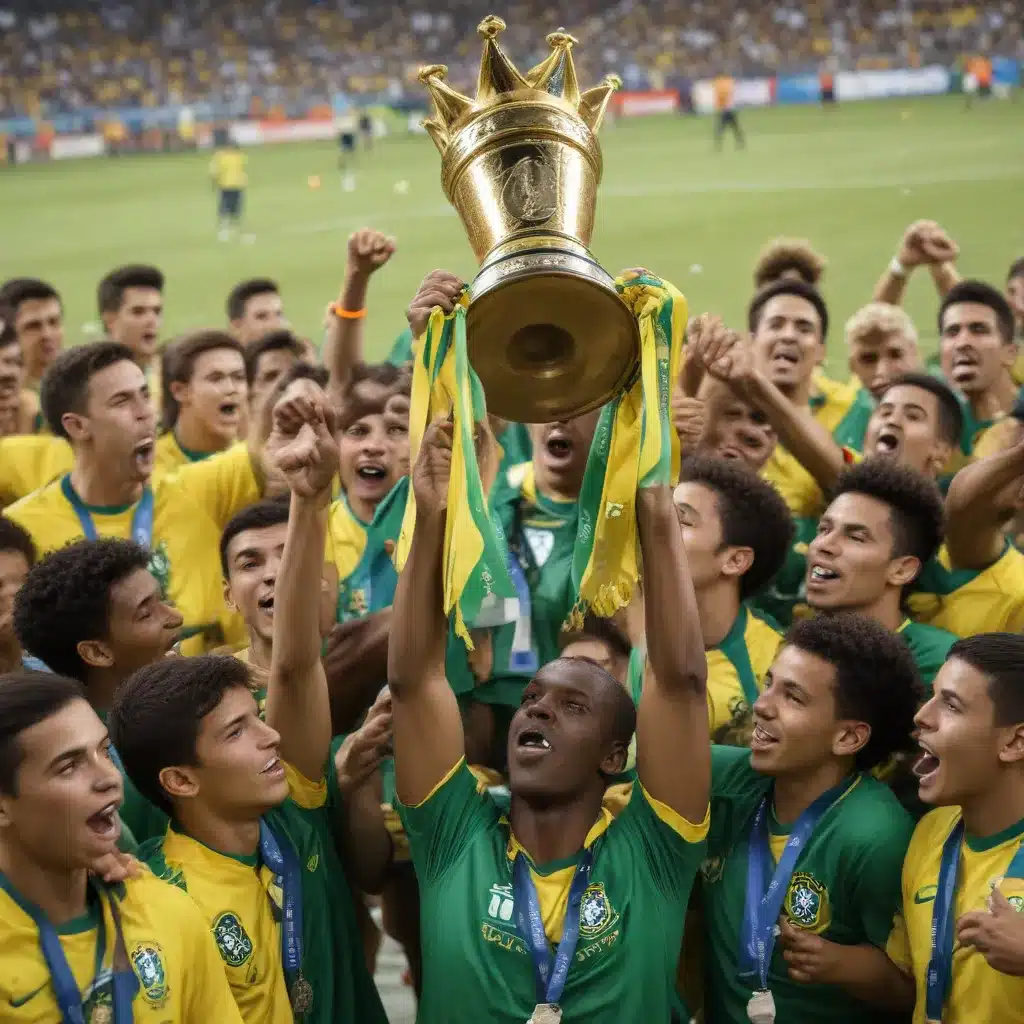
Brazilian Football Tournaments
Brazil is a football-crazed nation with a rich and vibrant football culture that extends far beyond the iconic national team and top-flight Brasileirão league. Across the country’s vast regions, regional football tournaments have long played a crucial role in shaping the sport’s landscape, nurturing local talent, and captivating passionate supporters.
Regional Football Tournaments in Brazil
Major Regional Tournaments
Among the most prominent regional tournaments in Brazil are the Campeonato Paulista (São Paulo), Campeonato Carioca (Rio de Janeiro), Campeonato Mineiro (Minas Gerais), Campeonato Gaúcho (Rio Grande do Sul), and Campeonato Pernambucano (Pernambuco). These state-level competitions feature the top clubs from their respective regions, showcasing fierce rivalries, tactical innovations, and the emergence of future Brazilian football stars.
Tournament Structure and Formats
The structure and formats of these regional tournaments vary, but they often involve a double round-robin phase, where each team plays the others twice, followed by a playoff stage to determine the champion. Some tournaments also feature an initial group stage before progressing to a knockout phase. The calendars are typically structured to align with the national Brasileirão season, with regional competitions often taking place in the first half of the year.
Participation and Qualifying Criteria
Qualification for these regional tournaments is typically based on a club’s performance in the previous season’s league or cup competitions. The number of teams participating can range from 8 to 16, depending on the region and the specific tournament format. Smaller states may have fewer top-flight clubs, while the more populous regions, such as São Paulo and Rio de Janeiro, can feature more intense and competitive regional tournaments.
Coaching Strategies in Brazilian Football
Tactical Approaches
Coaches in Brazil’s regional tournaments are known for their tactical versatility and adaptability. From the possession-based, technical football of São Paulo to the high-intensity, pressing styles of the southern regions, the diversity of tactical philosophies is a hallmark of Brazilian football. Coaches must not only develop their players’ technical and physical attributes but also instill a strong tactical understanding to navigate the unique challenges posed by each regional tournament.
Player Development Philosophies
Regional tournaments provide a crucial platform for player development, with coaches often tasked with nurturing young talent and preparing them for the demands of the national Brasileirão or even international competitions. The ability to blend technical proficiency, tactical awareness, and mental resilience is highly valued, as coaches seek to produce well-rounded players capable of thriving at the highest levels of the game.
Performance Analysis and Feedback
Successful coaches in Brazil’s regional tournaments often employ advanced performance analysis tools and techniques to gain a competitive edge. From detailed scouting reports on opposing teams to individualized feedback for players, these coaches leverage data and technology to make informed decisions and drive continuous improvement.
Impact of Coaching on Tournament Performance
Team Success Metrics
The impact of coaching strategies on team performance in Brazil’s regional tournaments can be measured through various success metrics, such as league positions, cup triumphs, and head-to-head records against rivals. Coaches who can consistently guide their teams to top finishes, secure trophies, and establish dominance over local rivals are often celebrated for their tactical acumen and player management skills.
Individual Player Improvements
Beyond team success, regional tournaments also provide a platform for individual player development. Coaches who can unlock the potential of their players, enhancing their technical, tactical, and physical attributes, often see their proteges go on to excel at the national and international levels. The ability to identify and nurture talent is a hallmark of the best coaches in Brazil’s regional football landscape.
Fan Engagement and Club Branding
Coaching strategies can also have a significant impact on fan engagement and club branding within the regional football ecosystem. Coaches who can cultivate a strong identity and connection with their club’s supporters, through their playing style, player development, and overall leadership, often become revered figures, further strengthening the bond between the team and its passionate fanbase.
Emerging Trends in Brazilian Football Coaching
Use of Analytics and Technology
In the ever-evolving world of football, Brazilian coaches are increasingly embracing the power of analytics and technology to gain a competitive edge. From advanced performance tracking and data-driven decision-making to the integration of video analysis and player-monitoring systems, these innovative approaches are becoming more prevalent in the country’s regional tournaments.
Cross-pollination of Ideas
The diverse tactical landscapes of Brazil’s regional tournaments have fostered a cross-pollination of coaching ideas and philosophies. Coaches from different regions often share knowledge, experiment with new methods, and adapt successful strategies from their counterparts, contributing to the continuous evolution of the game in Brazil.
Grassroots Coach Education Programs
To ensure a steady pipeline of well-trained coaches, grassroots coach education programs have gained prominence in Brazil. These initiatives aim to equip aspiring coaches with the necessary skills, knowledge, and player-centric mindset to navigate the challenges of the regional tournament landscape and effectively develop the next generation of Brazilian football talent.
The impact of coaching strategies in Brazil’s regional football tournaments cannot be overstated. From the tactical mastery and player development prowess to the ability to captivate passionate supporters, these coaches play a vital role in shaping the rich tapestry of the Brazilian game. As the sport continues to evolve, the lessons and innovations emerging from these regional competitions will undoubtedly have a lasting influence on the future of football in Brazil and beyond.

